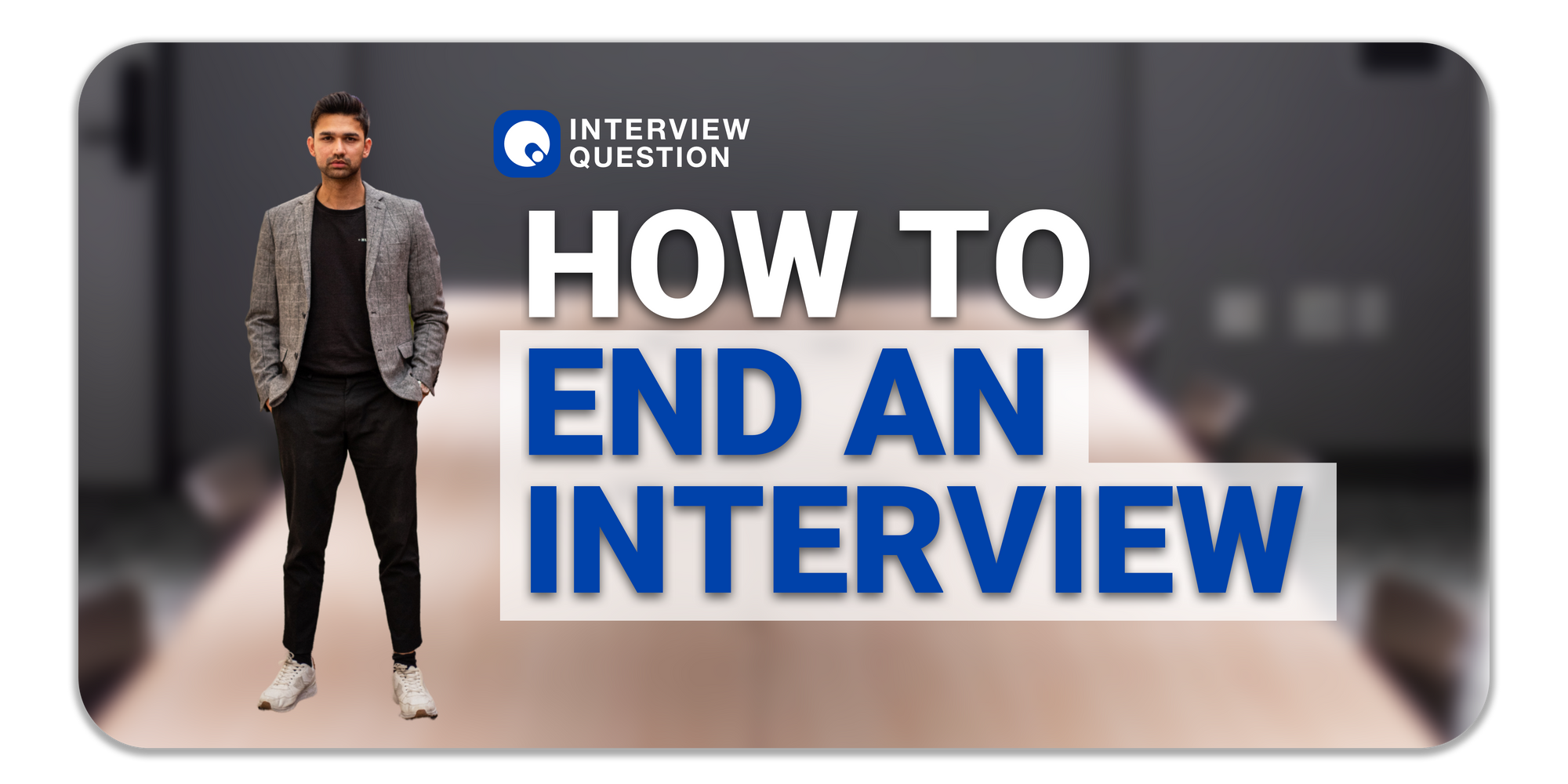Can I Be Asked On My Personal & Family Life?
• Are Personal Questions Allowed? • Examples on How to Respond • Types of Questions: Family, Medical History, Pregnancy, Criminal Background, Finances • Discrimination
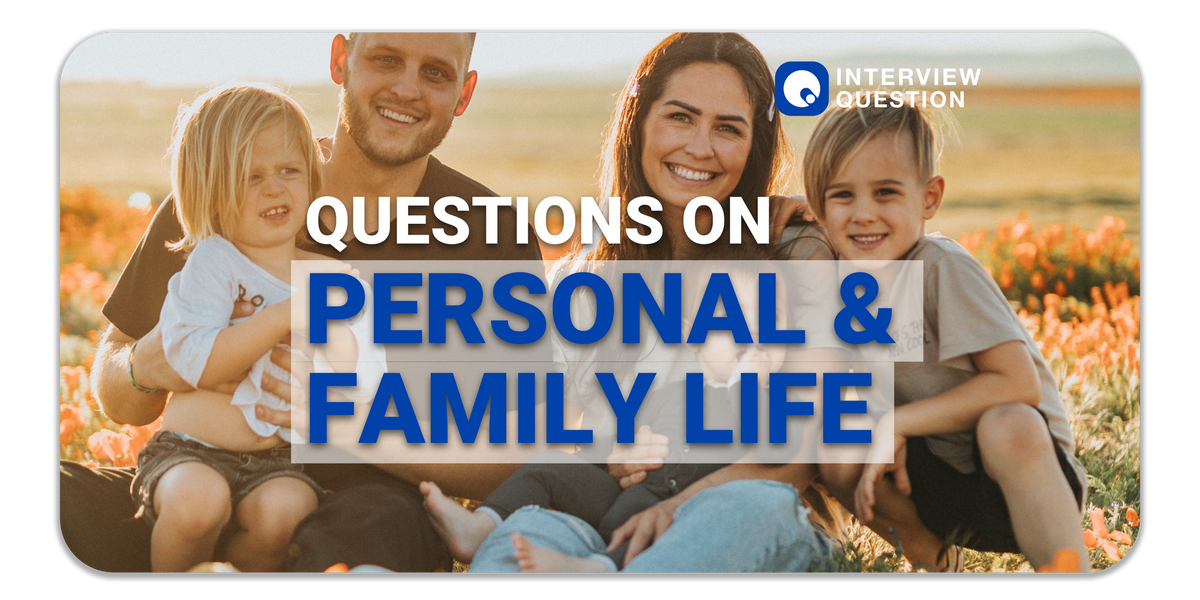
Invasive interview questions about your personal and family life are a no-no. However, interviewers often reframe these questions with the intention to assess your suitability. You end up having to reveal a part of yourself in the interview you don't want people to know, and yet, you feel that you must reveal this information - thus, you're probably reading this article to mentally prepare yourself.
Are Personal and Family Questions Allowed In Job and University Interviews?
No. You can't be asked about these things in an interview, period! You may feel that it's an invasion of privacy to reveal private affairs. You have the right to refuse to answer them and you can choose to exercise this right from the outset. Insist that you don't wish to answer the question.
As employment (for job and career promotion/demotion interviews) and admission (for academic interviews) serve to select the best person for the available opening, interview questions should be asked to gain information to determine the suitability - not for discrimination.
However, interviewers often reframe these private questions in ways to promote a particular image for the candidate and discourage a negative image they do not want to be associated with their organization or brand.
The ethics of background checks and criminal record checks has been subject to much debate for decades.
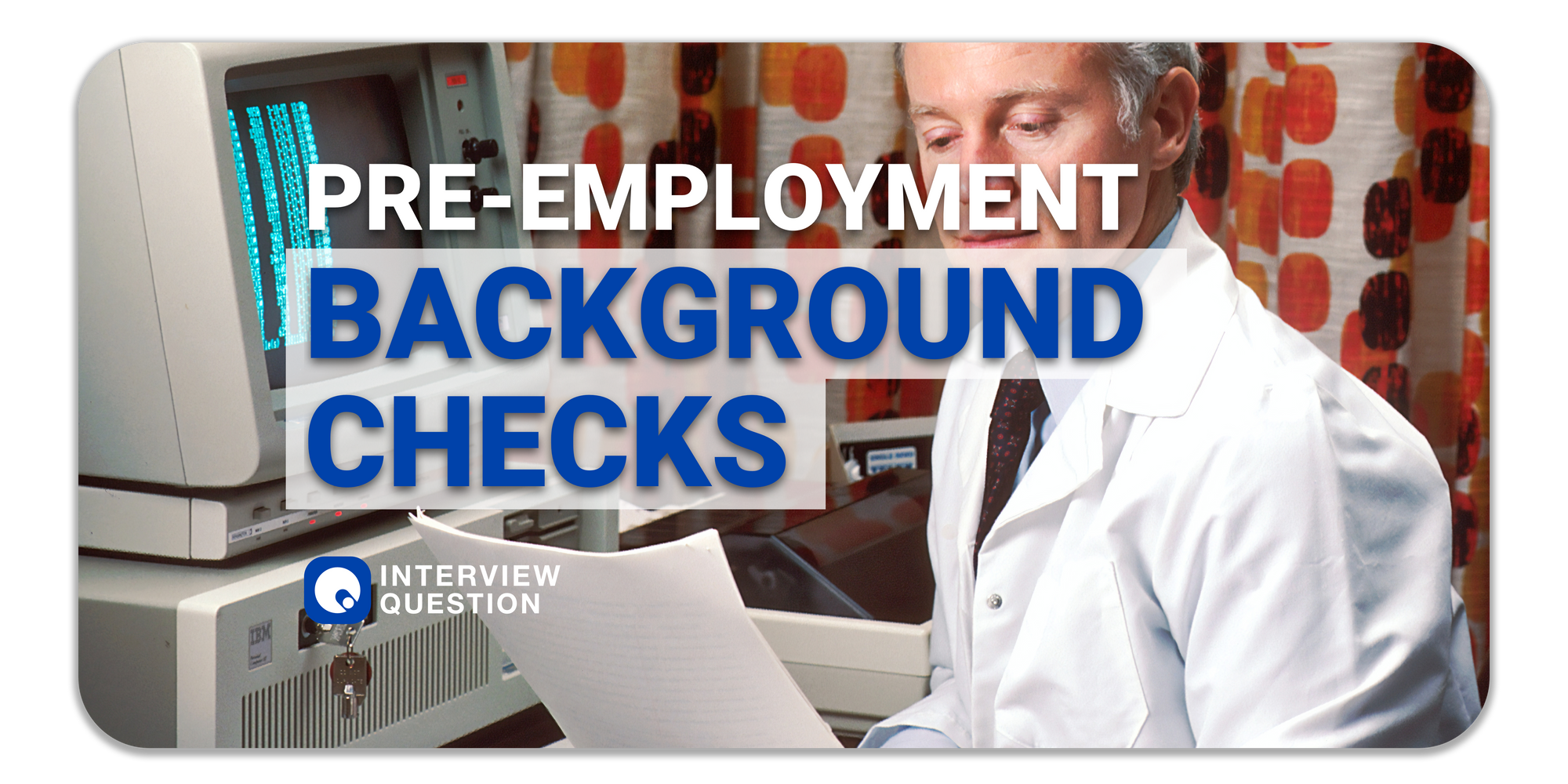
As a result, most countries have legislation in place protecting an individual's privacy rights and prohibiting discrimination on grounds of race, religion, sex, political views or sexual orientation. Yet, the law may not have prevented interviewers from asking candidates about such matters behind closed doors, excluding applicants with a criminal record or other negative personal history. And some employers, either maliciously or innocent, have been known to use such information to decide whether to hire or fire people.
It is wise to educate yourself and be aware of employment legislation that applies to your jurisdiction. For college and university applicants, they can seek references and relate their experiences on school portals and open access, transparent review sites like Glassdoor.
Your Likely Physiological Response
In the interviewer's process to gain greater insight into your character and decision-making process, the truth is that these questions might be actually intimidating you in getting the job.
How you will likely react (a.k.a. physiological response); Emotions and reactions you may experience:
- Reluctant to be forthcoming with information
- Give a flat out "no" to their requests to protect yourself
- You might be too honest and a lot of information is revealed
- You feel completely violated by the inquiring party
- You find the conversation topic inappropriate
- You change the subject to avoid answering the questions on your personal life
Many more emotions and reactions are possible. Whatever happens, stay calm - it's just an interview! Not an interrogation or criminal investigation. You're not doing anything illegal, and you have the right to answer every single question - will you tell your debit card PIN? No!
As far as possible, give a reasonable answer to every question.
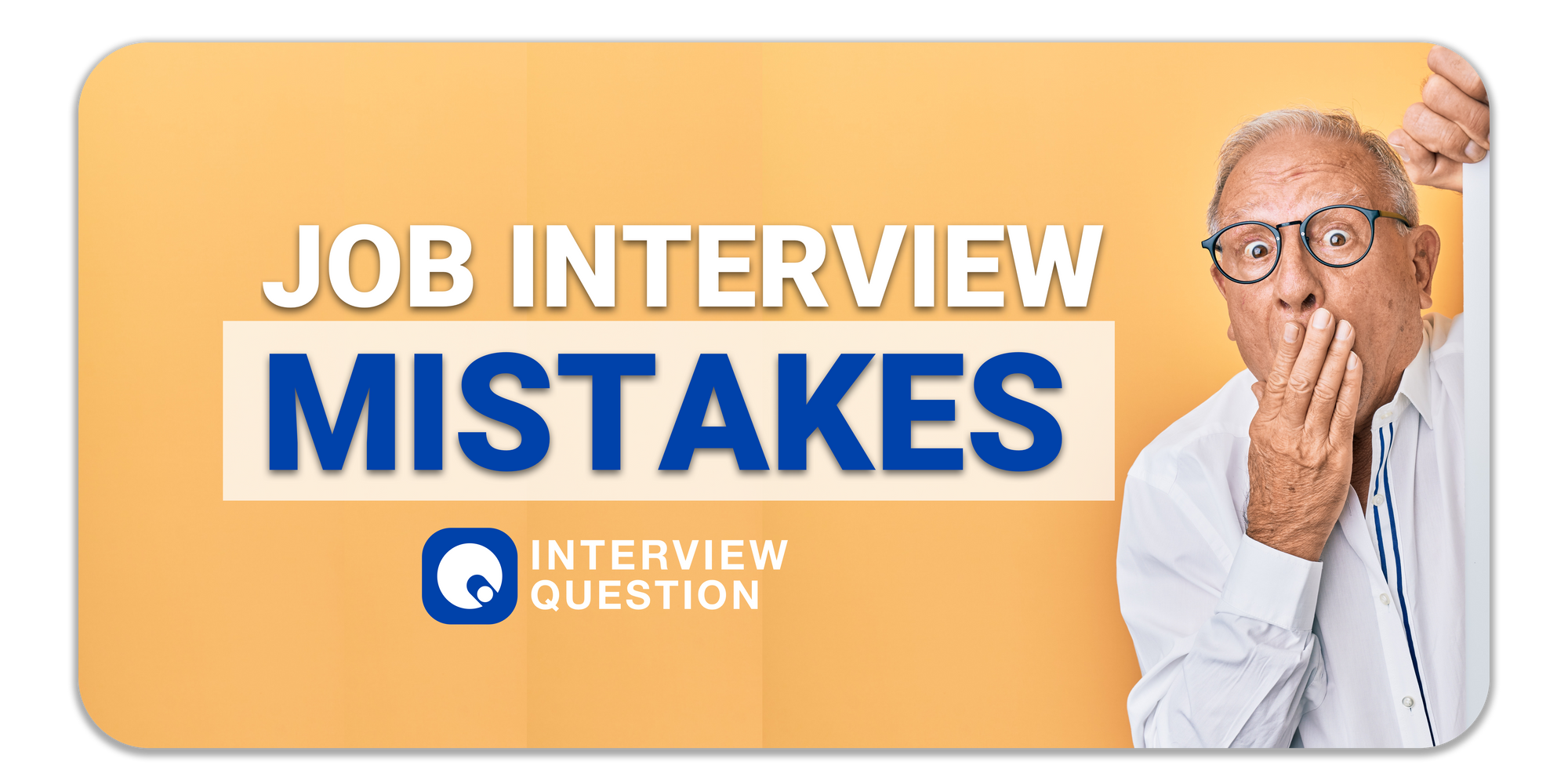
Next, we go over the types of questions that may be asked.
- Family / Relationships
- Medical
- Pregnancy-related
- Criminal Background
- Personal Finances
Family Background (Relationships) - Family Nucleus, Spouse, Children, Parents, Pets, Girlfriend or Boyfriend
The interviewer may ask you questions about you and the people around you. This section provides specific family & relationship questions interviewers are likely to ask and a suggested approach for you to provide your response.
- Who does your family comprise of? You give the composition of your family nucleus and an overall indication of the support you get from your own family.
- Is your husband working and what is his occupation? It tells of the standard of living on a typical day. A productive spouse also makes for a happy and stable home. The opposite, however, may mean a negative influence in your life.
- Is your spouse a career woman? Likely a career woman herself, she may be a positive force in your career as well. Also, this tells if you are a primary caregiver to your children. If you're not, then this could mean that you are an independent and strong-willed individual - a bonus for employers! This also might mean that you're single or have separated from your partner and this is why you're looking for a job.
- What is your marital status - divorced, widowed, never married? Married people are generally happier, better, and more satisfied with their lives: they sleep better, have a healthy life expectancy, and have overall satisfaction levels.
- What are the ages of your kids? Younger children will need the involvement of parents: childcare, immunization medical appointments, etc.
- Are your children schooling or do they have families of their own? Your relationship with your kids is important and whether you have maintained it well through the years is telling of your character.
- Do you have or do you live with children? Being a parent gives you some expectations of your job as well as an understanding of the responsibilities that come with them. An interviewee who has been able to successfully manage a family shows maturity and dedication to his company and his job.
- Who looks after your parents? As elderly parents require significant time and devotion to care for, HR may be concerned about your commitment to the job and your possible dedication to the company.
- Do you own pets? Pets are a good indicator of an employee's personality traits, compatibility with colleagues, and management skills. You'll want them to find out just how much you care about these creatures.
- Is there a partner in your life? A boyfriend or girlfriend? The interviewer is interested in knowing if you are single or attached and if the status of your family is harmonious. You should go into detail about how happy you are with your current situation and that of your loved one.
- If there is a family emergency during work or school hours, how would you handle the situation? Your interviewer wants to know if you have prepared any plans in advance if something unexpected and sudden occurs. Should you not need to be "activated to respond", you are likely to have some skills in handling impending emergencies.
Even if the interviewer enquires about your family life, you should maintain that your job is not dependent on your family life.
What to Say About Your Family Background
On how to respond and what to say in reply to such questions, be positive and cheerful as you reveal your family background. Go slow and reveal smaller bits of information if you do not want to be forthcoming and too open with your personal life. Talk about your family members, their uniqueness, and how you cherish them.
To begin, let the interviewer know that you have a positive attitude towards your family and their well-being. Follow this up with a summary of the status of your parents, siblings, children, or partner to show that you're in touch with them. If they are doing well, then mention it briefly. Show strong relationships their uniqueness and how you cherish them.
Here are some possible responses (and examples) you could use:
- I am single, working on my career, and I do not get much help from my family. However, I stay in contact with them weekly through Facebook Messenger.
- My boyfriend/girlfriend is a great support to me. He/she is so understanding of my stressful work and school life that he/she has even quit his/her job, too! We're thinking about getting married soon. My parents? They're retired in another province. It's all right with them if I move away to take a new job.
- I am happily married and enjoy the blessings of my children and parents-in-law. My wife is a fantastic cook, so we always have dinner together at home every night.
- My husband is a successful businessman who owns his own manufacturing company. Due to his busy schedule, he usually has to travel for business trips. But I accompany him whenever possible in order to give him moral support while abroad!
- My children are old enough to make decisions on their own now and no longer need my companionship. However, we make it a point to meet every first Friday of the month for dinner, and it has become a family tradition where I get to see my kids and grandkids.
Questions on Medical History
Interviewers may be interested in your personal medical history and those of your immediate family members. The kind of conditions you have and you are expected to have affected the risk they will undertake by having you around on their facility and the accommodations they need to take to cater for your needs.
Questions interviewees may get are as follows:
- Do you have any genetic conditions common to your ethnic background?
- Do you have any medical conditions that will affect your ability to work?
- Are you on medication, and if so, what are they for?
- Do you suffer from any chronic health problems or diseases? If so, what kind of treatment do these require?
- Have you ever been hospitalized due to a medical condition? What was the cause and how long was your stay for.
The information you provide in response to the questions on your health history also affects the insurance you may receive as a new employee or student. If you are found to have lied about your health history, you may be dropped and sued by the organization. Even if the information is not to affect your access to insurance, it does affect the perception of the interviewer.
In addition, questions asked about your illness may carry negative connotations:
- Because you will have a condition that needs regular medication, you will have lower performance at work because you are dealing with your personal health issues in addition to meeting your job responsibilities.
- It is likely that if any of your immediate family members have genetic conditions that are incurable and chronic
- Your illness may be sensitive to exposure to patients and many people believe the condition to be contagious. Therefore, they may consider you an infection risk, as both an employee and a student living in housing provided by the employer.
To respond effectively you may want to answer:
- Yes, I have a genetic condition that is common for my ethnic background (such as cystic fibrosis or hereditary muscular dystrophy). Though it is incurable, I am not afraid and I have been taking medication to keep the symptoms at bay. As such, I still function well and lead a normal life.
- I am in good health and have never had a serious illness or disease. My family and I rarely see a doctor unless we are sick, but I consider myself healthy and do not anticipate any issues in the future
- I had surgery in 2009 and was hospitalized for a week. I was able to recover within a month and did not feel any lasting effects afterward.
- My family does not have any genetic conditions, but there is high risk of diabetes due to my mother's side of the family. However, she has been taking medication and working with her doctor to keep it under control.
- I am healthy and active, but I am on seizure medication which requires me to take it regularly.
The answer to this kind of question is very individual. Some interviewees may be willing to disclose their medical history, while others may not. Try to only give the information asked of you because providing any more can reveal weak spots in your health.
Questions on Pregnancy (for Female Applicants)
Prospective female applicants can be concerned about their chances at a job or a place at the school if they are pregnant at the time or trying to be pregnant. Interviewers usually ask about an applicant's children and intentions to family planning because they know mothers need to take time off work weeks before they give birth and have to rest months after. Thoughly surely the organisation can afford giving Paid Time Off (PTO) if necessary, the disruption of work by the absence of a key person may outweigh costs.
Further, female employees and students who were recently pregnant is likley to be more engaged in the kid's early childhood development. Especially for first time mothers, the significant time away from office or class can have a huge impact on the company performance and quality of education received respectively.
Therefore, for our female applicants we provide a bullet point list of questions the interviewer may ask so you can be mentally prepared for them:
- What is the status of your pregnancy?
- When are you due (or when are you planning to give birth)?
- Are you planning on taking maternity leave? How many hours will you need?
- Will your child be staying with your family or will you be hiring a nanny to take care of him/her?
- Does your family live nearby or far away and do they have the capability to take care of the child?
In response to questions on pregnancy, you should take note of the following:
- Pregnancy is your choice and your employer or school should have no say in changing your decision
- Be prepared to make accommodations and continue to function in the same way as you were before you were pregnant. This means a work from home scenario (for jobs) and distance learning (for school); Your willingness, conviction and determination you show to the interviewer will reflect your work ethics, maturity and personal commitment
- Only make decisions that you feel are right for you and your family
- Being forthcoming about your pregnancy is acceptable, but not giving details about the health of the long-term outcome is understandable (i.e. whether you are expecting only one or multiple children, how many months pregnant you are etc.)
Ultimately, you being pregnant or not should have little bearing in the selection process and you may want to perceive having to disclose your status is no different from asking other applicants about their religion, age or marital status. The applicant's personal life is their own and not the responsibility of the company or school.
Questions About Arrests and Convictions - Criminal Background
Certain employers are more concerned with your past criminal record than others, especially private schools and certain government agencies such as the U.S. military and public school districts. Interviewers may encroach on your personal life and compel you to make a declaration on your personal standing.
The following sections provide answers to questions related to criminal records. You can use this section of the guide as a starting point for your answer.
The interviewer may ask you to describe your arrest history as well as explain why you were arrested in the first place. Here are some examples of questions you may be asked and a suggested way you might respond.
- How many times have you been arrested? What for? Why?
- Have you ever been arrested for a violent crime, such as assault or robbery?
- What type of crimes are you accused of committing? (Disorderly conduct, drunk driving, etc.)
- Have you ever done drugs, or how long have you been drug-free?
- With the exception of traffic fines and parking tickets, have you ever been fined, offered a composition offer or dealt with in a court of law?
Your answers should always be honest and to the point. Although most interviewers will be interested in your past arrests and convictions, the listed ones are common for many organizations.
In response, you can take the following approaches:
- When I was younger, I didn't know any better. I'm still paying the consequences.
- Most of my arrests were misdemeanors that I had no idea then, as a high school student, that it would cause me problems as an adult.
- When it comes to assaults, it was all a misunderstanding or a fight gone wrong, and I have never actually hurt anyone but myself.
- It was mostly drug possession, but I have been off drugs for the past two years due to my commitment to school and career. I was only given tagging for the first 2 weeks instead of the full year, and I was let off early after a year of monitoring. I have had good support of my parents through the years, including up to now.
- I was only fined and never actually went through court.
- I had my license suspended once because of traffic violations such as speeding and parking issues.
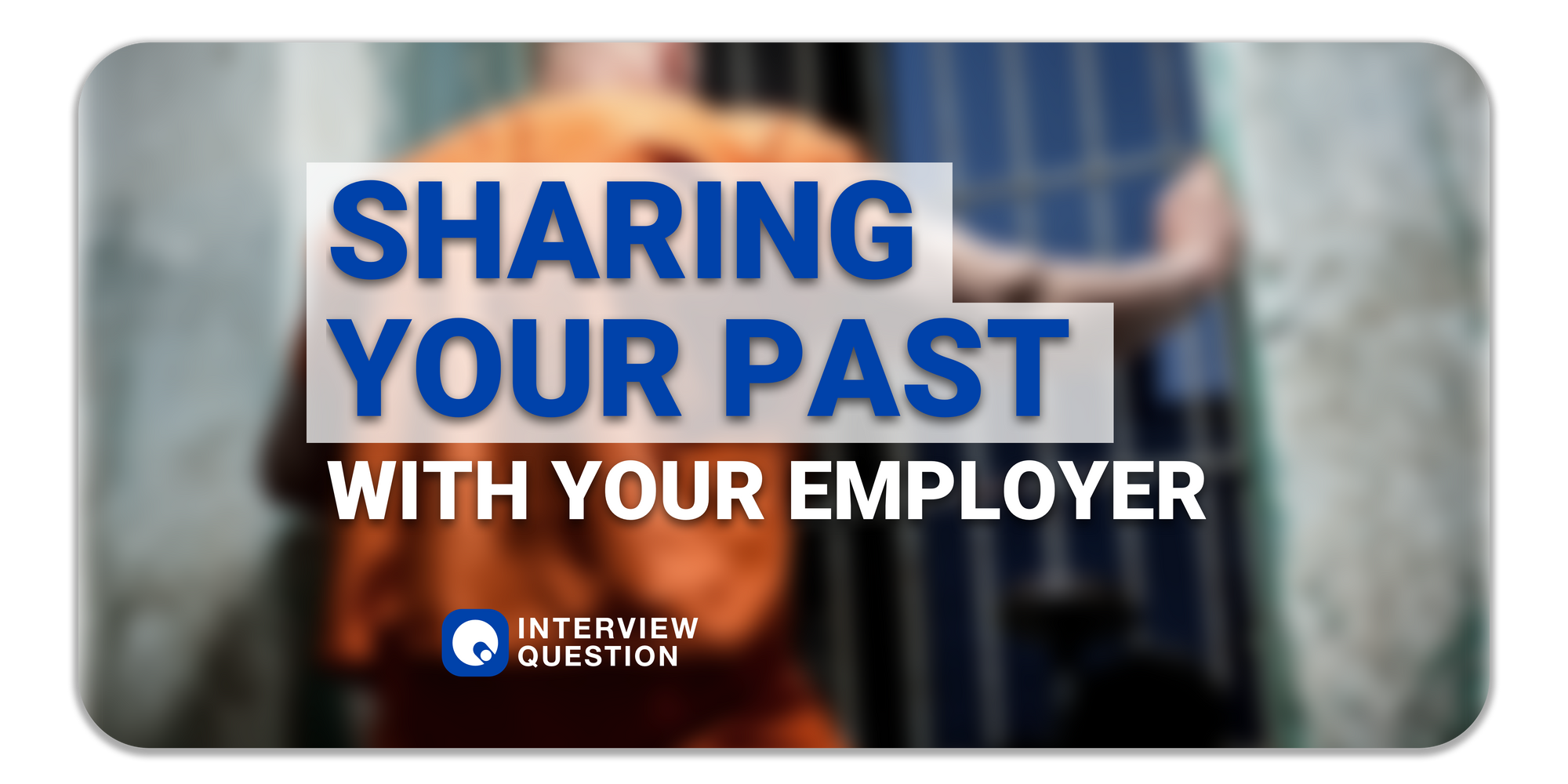
Questions about arrests and convictions may seem comical. You may just brush it off as a passing question, but interviewers would rather have you tell them in the face about your history than them finding out in a background check prior to employment. These are serious questions on serious topics. As some jobs and academic programs (Masters or PHD) do not permit admitting applicants with poor personal or social standing, your response on personal history is no laughing matter and is indeed a critical question in the interview.
Questions on Personal Finances & Credit Score
Questions about credit score may not be highly offensive but could be seen by some as being insulting. Some interviewers are interested in personal finances of their interviewees because finances have a direct implication on performance (both at school and at work) - more often than not, if an employee's job performance is sub-par due to financial issues, the employee will receive a poor performance review and therefore might likely be let go.
The link between performance and financial status is sound; Rooted in Maslow's Hierarchy of Needs, the individual needs to meet his own physiological needs of food and shelter (home) before he can move up the hierarchy to persue his needs of safety for gainful employment.
Your own and your family's financial worries may cause stress at home. This stress can be brought to the workplace or school - something that they don't want happening.
Questions interviewees may get are:
- Do you have any debts besides student loans? Do you have any car loans and mortgages or other personal loans/loans taken out in the past few years?
- How many credit cards do you have?
- What is the highest credit score you have ever had?
- Do you make all your payments on time?
- How much outstanding debt do you have and what is the debt to income ratio?
- Do you live within your means and are you financially responsible in the same way as more affluent individuals?
In response, interviewees can answer the questions with:
- I am financial responsible with money; I insist to choose cash and debit options and have never run into debt.
- Most of my student loan has been repaid and my spouse and I are on track to complete all interests payment for our home in three-and-a-half years. Even though the COVID situation has detracted our lives in the past 2 years, we were able to make all payments on time with our reserve savings. Our performance is unaffected by our financial situations and we have never received a poor performance rating as a result. Now that this is out of the way, I think we should move to another topic.
- We have only one credit card that we only use occasionally for small online purchases. We pay off on time and do not carry a balance.
- My savings and investment fund typically cover the cost of basic living expenses (mortgage, groceries, clothing), while my wife's contribution covers all other expenses (clothes, makeup, vacations). We are on track to financial independence if we keep this up.
- My credit score is above 800 and ever since my divorce, it has been steadily rising every month. Sometimes there will be a new credit to report because of a job, but rarely do they affect my score greatly.
In addition, there are many people who would paint all applicants based on their financial status:
- Some employers will put a higher value on a candidate's ambition and drive than their ability to weather the recession.
- Students who come from a well-to-do household may have a more competitive edge over others because they have more experience in solving problems including those that are related to finances. They have the advantage of not needing to make extra money during school breaks or reduce hours at work to attend class.
Regardless of your personal financial situations, you can elicit a more positive response ftom your interviewers if you show demonstrated ability to problem solve and handle adversity. When you are having problems, how you deal with them can show potential employers and schools that you are not only capable of handling hard situations but also that you can deal effectively and appropriately.
Questions for Applicants at Risk of Discrimination
The Equal Employment Opportunity Commission (EEOC) warns that applicants who are at risk of discrimination may be asked questions about their race, gender, age, religion, disability or national origin in the hiring process.
These questions are illegal in the sense that an interviewer should not ask them even if the applicant voluntarily discloses such information. This does not mean that you cannot be asked these questions as an applicant but it is illegal for you to be asked these questions during the interview process.
If you do provide this information, no action may be taken based on your answers to these questions. For example, if you disclose that you are a person of color, an employer cannot legally turn down your application based on your race or color.
In addition, if you feel that under intense questioning, you will be (or have been) asked illegal questions on religion or other protected classes, you may wish to seek legal advice.

Conclusion
Interview questions are primarily to provide you with information that will allow you to make an informed decision about whether the job or university is right for you.
The best way to deal with personal questions is to keep your cool while allowing the interviewer to his or her job.
Be honest and be aware of what may be asked you, answering only to parts you feel comfortable and willing to respond to. It remains your right to keep private matters private, but as much as worklife can spillover to school-life, family life and personal life can cause an intermingling whirlpool of swirling and swishing.
Arriving at an interview mentally prepared for the mess of questions will help you to perform better in the conversation.
